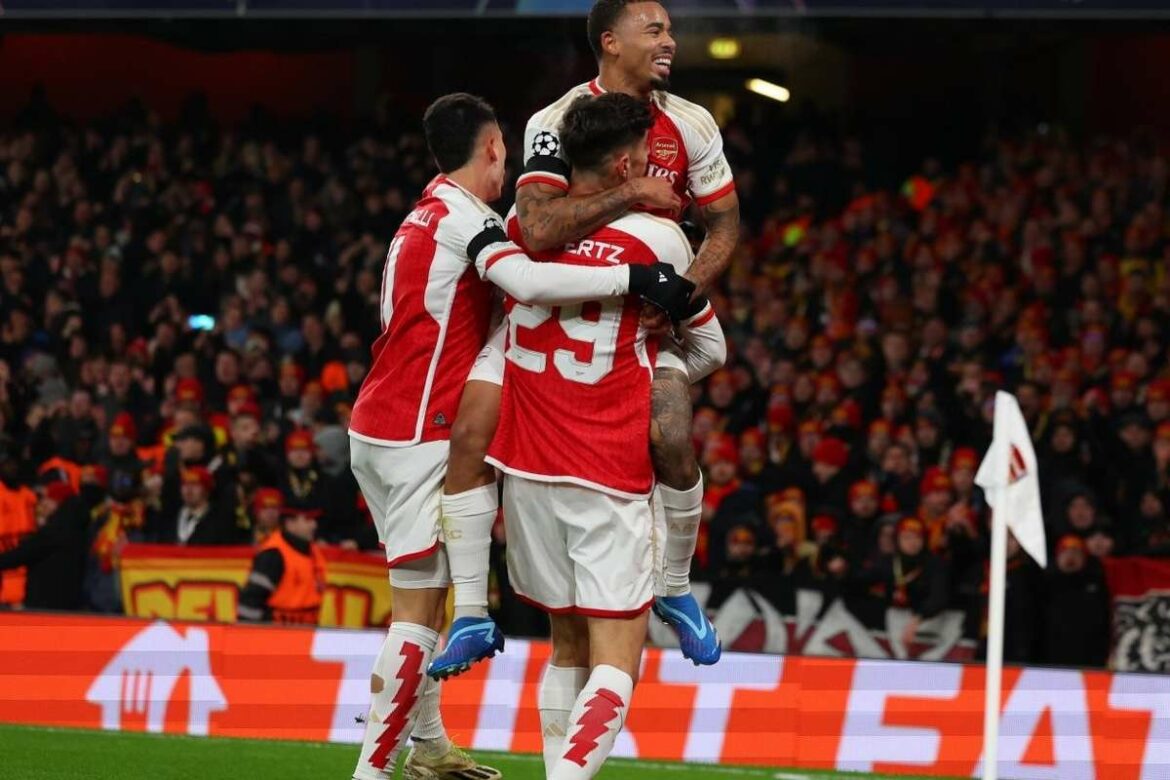Nuno Mendes Blamed for PSG’s Champions League Defeat by Former Arsenal Star Samir Nasri
In a Champions League match on Tuesday, Paris Saint-Germain suffered a 2-0 defeat against Arsenal, and former Arsenal star Samir Nasri had some strong words for left-back Nuno Mendes. According to Nasri, Mendes was at fault for the team’s loss due to his struggles during the game.
Who did Samir Nasri blame for Paris Saint-Germain’s recent defeat?
Former Arsenal Star Nasri Points Finger at Defender for PSG Defeat
Former Arsenal midfielder Samir Nasri has pointed the finger at a defender for Paris Saint-Germain’s defeat in a recent match. The French player, who was known for his stint at Arsenal before later moving to Manchester City, has been vocal about his opinions on the recent performance of PSG.
In a recent interview, Nasri criticized the defensive performance of PSG and highlighted specific areas where he believes the team fell short. His comments have sparked a debate among football fans and pundits, with many weighing in on the validity of his claims.
In this article, we’ll dive into Nasri’s comments, analyze the defensive performance of PSG, and explore the potential impact of his critique on the team. We’ll also discuss the broader implications of such public criticisms in football and how they can affect team dynamics and performance.
Nasri’s Critique of PSG’s Defensive Performance
Nasri’s pointed comments about PSG’s defensive performance have made headlines in the football world. The former Arsenal star highlighted the lack of cohesion and communication among the defenders, citing specific instances where he believes individual errors led to PSG’s defeat.
According to Nasri, PSG’s defenders failed to maintain a compact backline and were easily exploited by the opposition’s attacking players. He also pointed out instances where defenders failed to track their markers effectively, leading to goals conceded by the team.
The Impact of Nasri’s Critique
Nasri’s critique of PSG’s defensive performance has sparked a debate about the team’s overall defensive capabilities. While some have dismissed his comments as mere criticism from a former player, others have taken his words seriously and called for improvements in the team’s defensive tactics.
Criticism from former players and pundits can sometimes have a significant impact on a team’s dynamics and performance. Public scrutiny can put additional pressure on players and coaching staff to address the highlighted issues and make necessary adjustments.
It’s important to note that constructive criticism can sometimes be beneficial for teams, as it provides an outside perspective on areas that need improvement. However, excessive or unwarranted criticism can also have negative effects on a team’s morale and confidence.
The Broader Implications of Public Criticisms in Football
Public criticisms in football, especially from former players and pundits, can carry significant weight in the sporting world. Players and coaching staff are often under intense scrutiny from fans, media, and experts, and public critiques can influence public perception of a team’s performance.
While constructive criticism can encourage teams to address weaknesses and strive for improvement, excessive negativity can create a toxic environment and hinder a team’s progress. It’s crucial for critics to balance their opinions with constructive suggestions and maintain a respectful tone when addressing a team’s shortcomings.
In the case of Nasri’s critique of PSG’s defensive performance, it’s important for the team to take his comments into consideration and work on improving their defensive tactics. At the same time, it’s essential for the coaching staff and players to filter out excessive negativity and focus on constructive feedback that can contribute to their growth as a team.
The Future of PSG’s Defensive Performance
In light of Nasri’s critique and the subsequent discussions about PSG’s defensive performance, it will be interesting to see how the team responds in future matches. Whether the team takes Nasri’s comments to heart and implements changes to their defensive tactics remains to be seen.
Ultimately, constructive criticism can be a valuable tool for teams to identify and address their weaknesses. However, it’s crucial for critics to offer their opinions in a respectful and constructive manner, and for teams to use criticism as a means to grow and improve.
Nasri’s critique of PSG’s defensive performance has stirred up a debate about the team’s capabilities and potential areas for improvement. While public criticisms in football can influence public perception and team dynamics, it’s essential for critics to strike a balance between offering constructive feedback and maintaining a respectful tone. As PSG continues its season, all eyes will be on the team’s defensive performance and how they respond to the critiques and pressure from outside sources.
Speaking as a Canal Plus commentator, Nasri criticized Mendes’ defensive abilities by stating that he lacks the necessary skills to defend effectively. Despite being proficient in attacking and posing a threat on the offensive end, Nasri expressed bewilderment at Mendes’ tendency to act more as an additional center-back rather than fulfilling his primary role as a left-back.
The outcome of the match clearly disappointed Nasri. He believed that PSG’s loss could have been avoided or minimized if Nuno Mendes had displayed better defensive prowess.

